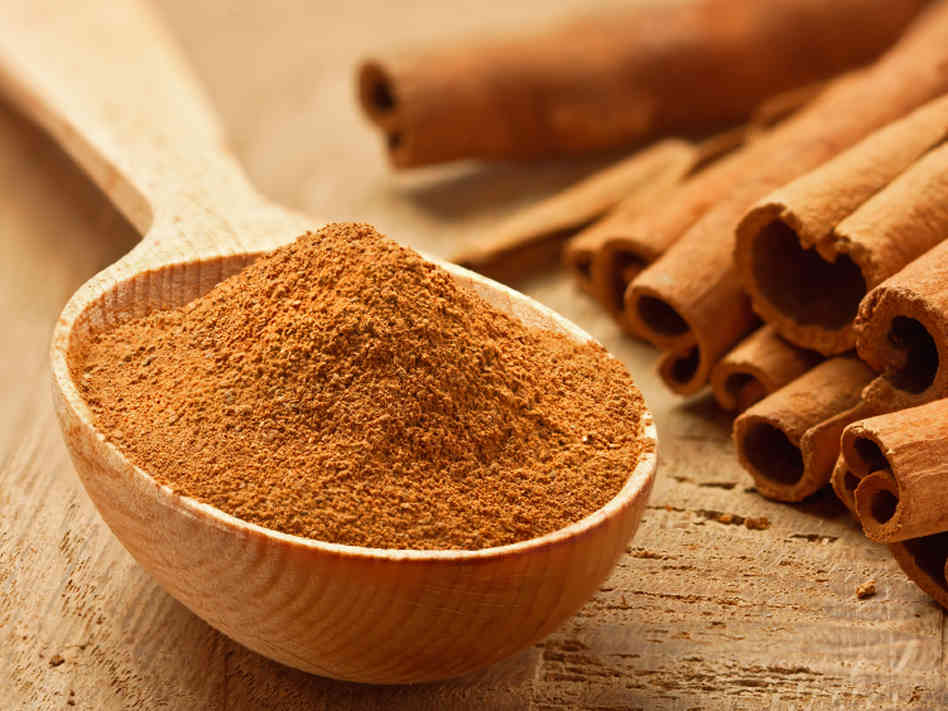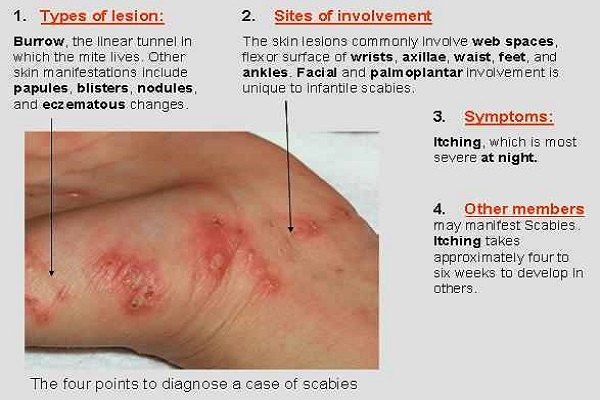19 Surprising Health Benefits of Cinnamon That You Did Not Know About
Cinnamon, scientifically known as Cinnamomum, is one of the oldest spices known to the human kind. It is a brown bark of the cinnamon tea. Cinnamon tree is native to South America, South East Asia and Caribbean. The ancient Egyptians have consumed this spice since 2000 BC as an embalming agent. In fact, this treasured spice was considered more precious than gold in the ancient times.
Image Source
There are two types of cinnamon:
- Ceylon Cinnamomum verum
- Cassia Cinnamomum aromaticum
Health benefits:
This wonder spice has been revered since ages to treat ailments like colds, bacterial infections, vitality and digestive troubles. The potential health benefits of cinnamon can be attributed to the active oil components like cinnamyl alcohol, cinnamyl acetate and cinnamaldehyde present in it. Some popular health benefits of cinnamon include:
1. Heart health:
The blood thinning property of cinnamon acts an anti-clotting agent, preventing blood platelets clumping. This makes it beneficial for people suffering from heart diseases. Make sure you do not take cinnamon with other blood thinning medication. Taking ½ teaspoon of cinnamon per day can lower the bad cholesterol considerably. Cinnamon can also reduce triglyceride levels by 25 to 30% and low-density lipoprotein by 7 to 27%.
2. Diabetes:
Cinnamon is very useful for treating type 2 diabetes. It regulates the blood sugar, making it effective for hypoglycemic and diabetics. It increases the amount of insulin production in the body, preventing the onset of diabetes. Cinnamon extract can reduce fasting blood sugar levels in diabetics. Ceylon and cassia cinnamon is particularly useful because of the low levels of coumarin in it. Diabetics should take less than half a teaspoon of cinnamon daily to manage their sugar levels.
3. Candida:
The antifungal properties of cinnamon can kill candida and other medication resistant yeast and infections. Cinnamon oil particularly, is very effective against Candida. Take a few drops of cinnamon oil and mix with carrier oil. Apply gently on the affected area and leave it overnight. Ceylon cinnamon tea infused with cinnamon oil is one of the best natural remedies to fight the Candida infection. It also helps to strengthen the immune system.
4. Food poisoning:
Cinnamon’s ability to kill several types of bacteria makes it effective to combat food poisoning. The powerful antibacterial properties of cinnamon help to cure stomach bug. Adding cinnamon to foods can inhibit the bacterial growth.
5. Cancer:
Cinnamon oil is believed to be a strong solution for gastric cancer, melanomas and tumors. Eugenol and cinnamaldehyde, the two chemical components in cinnamon, have been shown to be effective in fighting the colon cancer and human hematoma cells. Cinnamon starves the cancer cells of the sugar that is needed to sustain them. It also reduces the proliferation of lymphoma and leukemia cancer cells.
6. Arthritis:
Cinnamon bark contains high levels of manganese, which is required by the body to build strong bones and other connective tissues. A deficiency in this mineral can lead to osteoporosis, one of the most debilitating conditions in the world. The aldehyde compounds in Ceylon cinnamon extract suppress the symptoms of osteoporosis. It also reduces the cytokines linked to the arthritis pain. Drinking cinnamon tea twice a day can ease the joint pain significantly. Alternatively, applying cinnamon oil or paste can relieve joint pain.
7. Mental health:
Mere sniffing the wonderful odor of cinnamon can boost cognitive function and brain activity. It keeps one more alert, focused and improves the memory. Cinnamaldehyde and epicatechins, the two compounds found in cinnamon can delay the development of Alzheimer’s disease. It prevents the developments of the filamentous tangles found in the brain cells that characterize Alzheimer’s disease. It is also an effective natural remedy for eliminating migraine pain. It reduces the chronic inflammation linked to the neurological disorders.
8. Irritable bowel syndrome:
Cinnamon is excellent for treating digestive disorders and other uncomfortable symptoms associated with irritable bowel syndrome. This wonder spice kills the bacteria and heals the infection in the gastrointestinal tract, enabling the digestive juices to work in a proper way. Take a cup of cinnamon tea thrice a day to relieve yourself from the irritable bowel syndrome.
9. Anti-bacterial:
The anti-bacterial and anti-microbial properties of cinnamon make it a natural disinfectant. In fact, cinnamon oil has the best anti-microbial activity than most of the medicinal oils. It is highly effective against ulcer causing H. pylori bacteria and other harmful pathogens and agents.
10. Antioxidant:
Cinnamon is one of the seven top antioxidant rich foods. Antioxidant is essential for the proper functioning of the whole body. It can repair almost all the damaged parts of the body, be it skin or organs. The high levels of antioxidants in cinnamon reduce the formation of free radicals, one of the major causes of cancer. The antioxidants in cinnamon also improve the food palatability.
11. Weight loss:
Cinnamon contains coumarin, a substance that thins out the blood, which eventually increases blood flow in the body. An increased blood flow boosts the metabolism, helping you with weight loss. Drink cinnamon tea with honey every day before breakfast to accelerate the weight loss process.
12. Pain reliever:
Cinnamon is an excellent warming agent, making it effective for relaxing and relieving muscle pain. Add a few drops of cinnamon oil to your bathing water to soothe the tired muscles.
13. Athlete’s foot fungus:
The anti-fungal properties of cinnamon make it a natural remedy for killing foot fungus. Add 2 drops of cinnamon oil to a tub of water and soak your feet. You will see positive results in just 3 days.
14. Dental health:
Cinnamon oil is often used as an active ingredient in several mouthwashes, toothpaste, breath mint and chewing gums. The antibacterial properties of cinnamon can help get rid of mouth bacteria without causing damage to gums or teeth. Gargle with cinnamon infused water to combat bad breath. You can also chew on a small stick of cinnamon to get relief from toothache.
15. Cold and flu:
Chinese medicine uses cinnamon as a natural remedy for phlegm and cough since time unknown. Cinnamon increases the blood flow in the body, thereby improving the oxygen levels to fight illness. Take cinnamon and honey concoction thrice a day to treat cold and fever.
16. PMS:
The high concentrations of manganese in cinnamon can mitigate the effects of PMS. According to a research, women who consumed 5.6 milligrams of manganese daily experienced fewer mood swings and cramps as compared to women who consumed less than 1 milligrams of manganese. Cinnamaldehyde in cinnamon increases the hormone progesterone and decreases testosterone, helping to balance the hormones.
17. Digestive system:
The high levels of fiber in cinnamon bind the bile salts and remove them from the body. This prevents the damage that the some bile can cause to the cells, ultimately reducing the risk of stomach cancer. The essential oil in cinnamon regulates the action of gastric juice, improving the digestion and assimilation of food in the body. To relive digestive disorder, take cinnamon tea infused with mint leaves two to three times a day.
18. HIV:
Cinnamon is also potentially effective against HIV. Cinnamon cassia bark is the most effective against HIV-1 and HIV-2.
19. Depression:
Cinnamon is an excellent natural cure for depression. The smell of cinnamon can effectively cure depression and anxiety. The scent of cinnamon can also reduce irritability following a day’s hard work.
Uses:
- Cinnamon works well with both sweet and savory dishes. Sprinkle powdered cinnamon on fresh apple or tea for a soothing evening snack.
- It is a staple ingredient in biryani, pulao and curries.
- Simmer cinnamon with milk and honey for a perfect winter beverage.
- You can also sprinkle some ground cinnamon to nachos and black beans to get a delicious taste.
Recommended dosage:
Doctors recommended taking ½ to 1 teaspoon or 2 to 4 grams of cinnamon powder a day. Very high doses can lead to toxicity, especially in people with liver problems.
Side effects:
- There is practically no health risk associated with cinnamon, when consumed in moderate amounts. However, excessive usage can irritate the mouth and lips, causing sores.
- Avoid applying cinnamon to skin as it can cause redness and irritation.
- Cinnamon may lower the blood sugar levels drastically, so you make sure you consult your doctor before taking cinnamon.
- Women suffering from breast cancer should not take cinnamon. It is also not recommended for pregnant and lactating women.
- Coumarin in cinnamon can lead to liver problems when consumed in excess amounnts
- There are possibilities that cinnamon can interact with antibiotics, blood thinners, heart medicines and diabetes drugs. Talk to your doctor before taking cinnamon supplements.
Selection and storage:
Cinnamon is available in the form of rolled quill or as ground powder. The sticks have a long shelf life, while the powder needs to be consumed as soon as possible. While purchasing cinnamon, smell the stick to make sure it has a sweet scent. This signifies that the spice is fresh. Ceylon cinnamon has a more refined and sweeter taste while cassia cinnamon has a stronger taste.
Try to purchase organic cinnamon to ensure that it has not been irradiated. Store cinnamon in a seal container and place in a cool and dry place. Ground cinnamon can be stored for about 6 months, while cinnamon sticks can last for over a year. You can extend the shelf life by storing the cinnamon in refrigerator. To ascertain whether cinnamon is fresh or not, sniff it. If it does not smell sweet, then it should be discarded.



